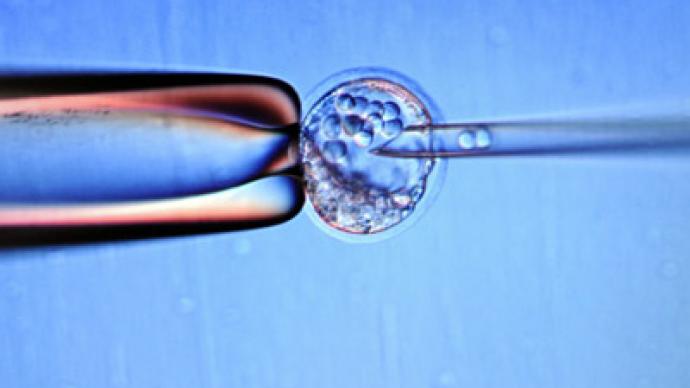Gene monopoly: Australian court rules in favor of genetic patenting

An Australian court has ruled in favor of allowing a company to patent a human gene. Concerns have been voiced that allowing a company to monopolize genes will turn the human body into a commodity, and will adversely affect healthcare.
The judge argued the act of removing a specific gene from the body and isolating it made it into a product “of new manufacture” and therefore open to be patented, despite the fact that the same gene may occur naturally in other human beings.
The patent was filed by US company Myriad Genetics in 1994 – if enforced in Australia, it would give the company exclusive rights to carry out tests on specific genes. In turn, the patent would prevent anyone else from isolating, researching or conducting tests on the gene in question.
Australia’s Federal Court dealt with the company’s patents on the BRCA1, which can be used to predict the likelihood of a woman contracting cancer
The judge’s ruling on Friday said that even if a gene has “precisely the same chemical composition and structure as that found in the cells of some human beings,” isolating it from the body creates and “artificial state of affairs,” making the gene a patentable commodity. Myriad’s claim on the genes was challenged by nonprofit Cancer Voices Australia, which argued the patent is illegitimate and unfounded.
Cancer Voices Australia has appealed to the Australian government to change the law, saying the patent could lead to worsening public healthcare and an increase in costs and restrictions on doctors. They also took issue with the logic that isolating the gene makes it fair game, arguing that the act is so commonplace, it is equivalent to snapping a branch from a tree.
"It is difficult to think of the circumstances where an artificially created state of affairs would not exist whenever there is some form of human intervention," the New Scientist quoted Dianne Nicol of the University of Tasmania, Australia, a specialist in law and human genetics, as saying.
Nicol added that the court’s decision had raised eyebrows in the Australian scientific community; the group has resolved to appeal the hearing.
Myriad had already patented the BRCA1 gene under Genetic Technologies Limited in Australia. However, the company sparked public outrage when they attempted to enforce the gene patent, and was obliged to let other companies practice tests on BRCA1.
In the US, Myriad Genetics enforces its patent on the gene and has the monopoly on tests related to it. As a result, a Myriad test costs upwards of $3,000, and is often not covered by health insurance. In neighboring Canada, where Myriad has not been allowed to impose the patent, the same test is quicker and costs one-third the price.
The Australian ruling comes just three months before a very similar appeal will be heard in a US Supreme Court case concerning Myriad and the American Civil Liberties Union, which is fighting the company’s monopoly on genes.
Currently, around 4,000 human genes have been patented by private companies.













